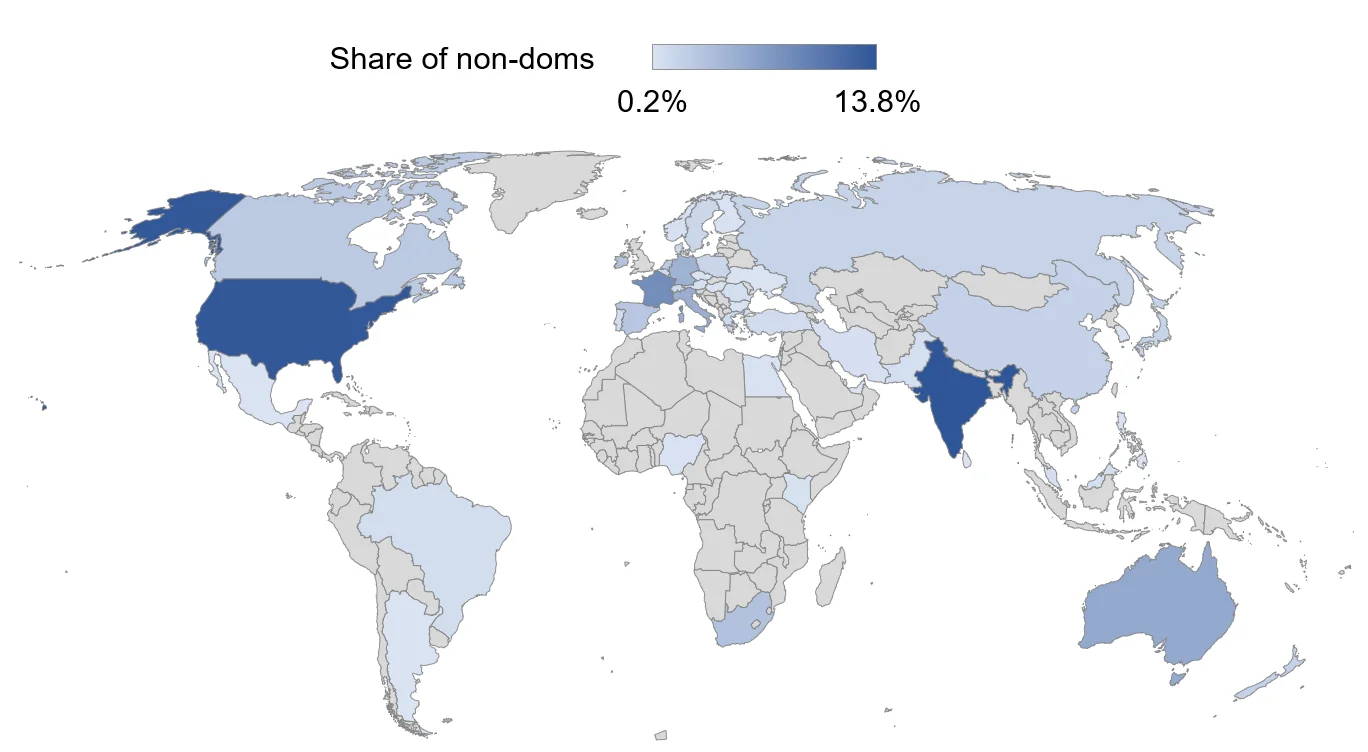Research Spotlight

The UK’s ‘non-doms’: Who are they, what do they do, and where do they live?
Professor Mike Savage (Martin White Professor of Sociology, LSE) has collaborated with Dr Arun Advani (Warwick), David Burgherr and Dr Andrew Summers (LSE) to produce new research on "The UK’s Global Economic Elite: nondomiciled tax payers".
.
Our analysis also reveals the remarkable concentration of non-doms in central areas of London
Professor Mike Savage
This ground-breaking research gives us a rich sociology of non-doms in the UK: their age and gender profile; where they come from and where they live; how much they earn, where they work and invest.
Professor Fran Tonkiss, Head of Department
This research project run by the International Inequalities Instituteand The Univeristy of Warwick represents a major milestone in measuring the significance of transnational ties amongst wealthy Britons. Reporting years of painstaking research in the secure data environment of HMRC, the UK’s tax authority, this project pieces together the scale of the ‘non-dom’ phenomenon amongst Britain’s highest earners.
Currently, this research has been published as both a working paper and a policy brief. You can read Professor Savage's statement in full here.
Policy Brief
The UK's 'non-doms': Who are they, what do they do, and where do they live?
Working Paper
The UK's Global Economic Elite: A sociological analysis using tax data

The non-dom clause goes back to 1799 when the Government needed to raise money to fight the Napoleonic Wars but wanted to protect aristocratic elites from being taxed on their colonial property by exempting income earned outside the UK. But, far from being an obsolete colonial throw back, this research finds that the non-dom phenomenon has been revitalised in contemporary global capitalism and helps to grease the wheels of the UK’s global economy.
Although this may not be surprising, given the recent publicity about the presence of Russian oligarchs in the UK, we are, for the first time, able to furnish the hard numbers which allows the researchers to go behind sensationalist stories. These reveal a much more complex story, in which affluent Europeans, Americans, and residents with ties to former British colonies are actually more frequent beneficiaries of non-dom regulations. Because this trend can be traced back to 1997, it shows that this phenomenon is not declining, if anything, it is gaining increasing traction from wealthy Indians and Chinese. The research also shows there are indeed significant numbers of ex-Soviet non-doms – enough to sustain the anecdotes – though as a share this group remains relatively small.
This project therefore highlights that the UK is at the intersecting crossroads of at least two different international networks, one centring on the persistence of British imperial ties dating back many centuries, and the other on continental European connections reinforced (until recently) by the progression of EU integration.
The research underscores that the UK elite lack substantial connections with large areas of the world, notably in Central America and South America, Africa (apart from South Africa), and Asia (apart from India and China in the past decade). It is for these reasons that discussions of globalisation, or the role of London as a ‘global city’ need to be tempered by the realisation that it is specific kinds of elite international networks in play. It speculates that the non-dom phenomenon predominantly mobilises affluent white populations, who are likely to be strongly represented amongst the ex-dominion nations and the EU.
This paper is only the start of research on this topic. Please make contact with Professor Mike Savage, Dr Arun Advani, David Burgherror Dr Andrew Summersif you want to find out more or have ideas for further development of this work in the near future.